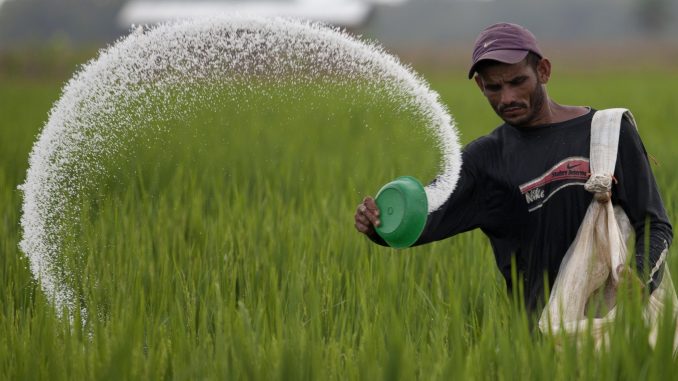
By Gireesh Chandra Prasad & Sayantan Bera
New Delhi : The powerful federal indirect tax body, the Goods and Service Tax Council (GST Council), on Friday gave relief to farmers by lowering tax rates on fertilizers and tractor parts hours before the country replaced a labyrinth of 17 central and state laws with a single indirect tax at a grand midnight ceremony in Parliament’s central hall.
The GST Council reduced the GST rate on fertilizers from 12% to 5%, while that on tractor parts was reduced from 28% to 18%.
Finance minister Arun Jaitley said after the meeting that the decision to lower the tax on farm nutrients was taken in light of concerns raised by several states.
“In today’s Council meeting, some additional sets of rules were approved. Other than this, many states had raised concern that the 12% GST rate proposed on fertilizers might increase the tax burden on farmers. Keeping in mind the tax rates on fertilizers prevailing in different states, the Council decided to lower it to 5%,” said the finance minister, who chairs the GST Council.
Farmers, grappling with drought in parts of India and a crash in agriculture commodity prices that have affected their incomes and loan repayment ability, have been demanding remunerative prices and loan waivers across states in recent months. Four states have in response announced debt relief. In the pre-GST regime, fertilizers attracted 4-8% indirect tax depending on the raw materials used and the states in which the products were sold.
Friday’s meeting of the Council had a lean agenda as the members did not want to make too many last-minute changes that would adversely affect the preparedness of businesses and traders. Prime Minister Narendra Modi met state finance ministers over dinner late on Friday before the midnight ceremony in Parliament’s central hall.
“This is a sensible decision without which cost of cultivation would have gone up for farmers,” said Devinder Sharma, a Chandigarh-based agriculture policy analyst. “There is no denying that the pressure built up by farmer agitations have played a role in this, but the GST Council should keep agriculture out of the tax net. Farmers still will spend more to buy equipment like tractors and pumps as well as pesticides in the new regime,” he added.
President Pranab Mukherjee and Prime Minister Modi, state chief ministers and finance ministers, as well as Council members, are scheduled to be present at the midnight rollout of GST, considering the macroeconomic and constitutional significance of the tax reform.
GST is designed to eliminate tariff barriers between states, making movement of goods easier and ending tax arbitrage that distorts economic activity, besides improving the competitiveness of industry.
The tax reform is expected to boost the growth rate of the country’s $2.3 trillion economy by up to two percentage points.
Shyamal Mukherjee, chairman, PricewaterhouseCoopers India Pvt. Ltd, said the rollout of GST will boost investors’ confidence in India, incentivize manufacturing activities and fuel economic growth.
Source: Livemint

Leave a Reply